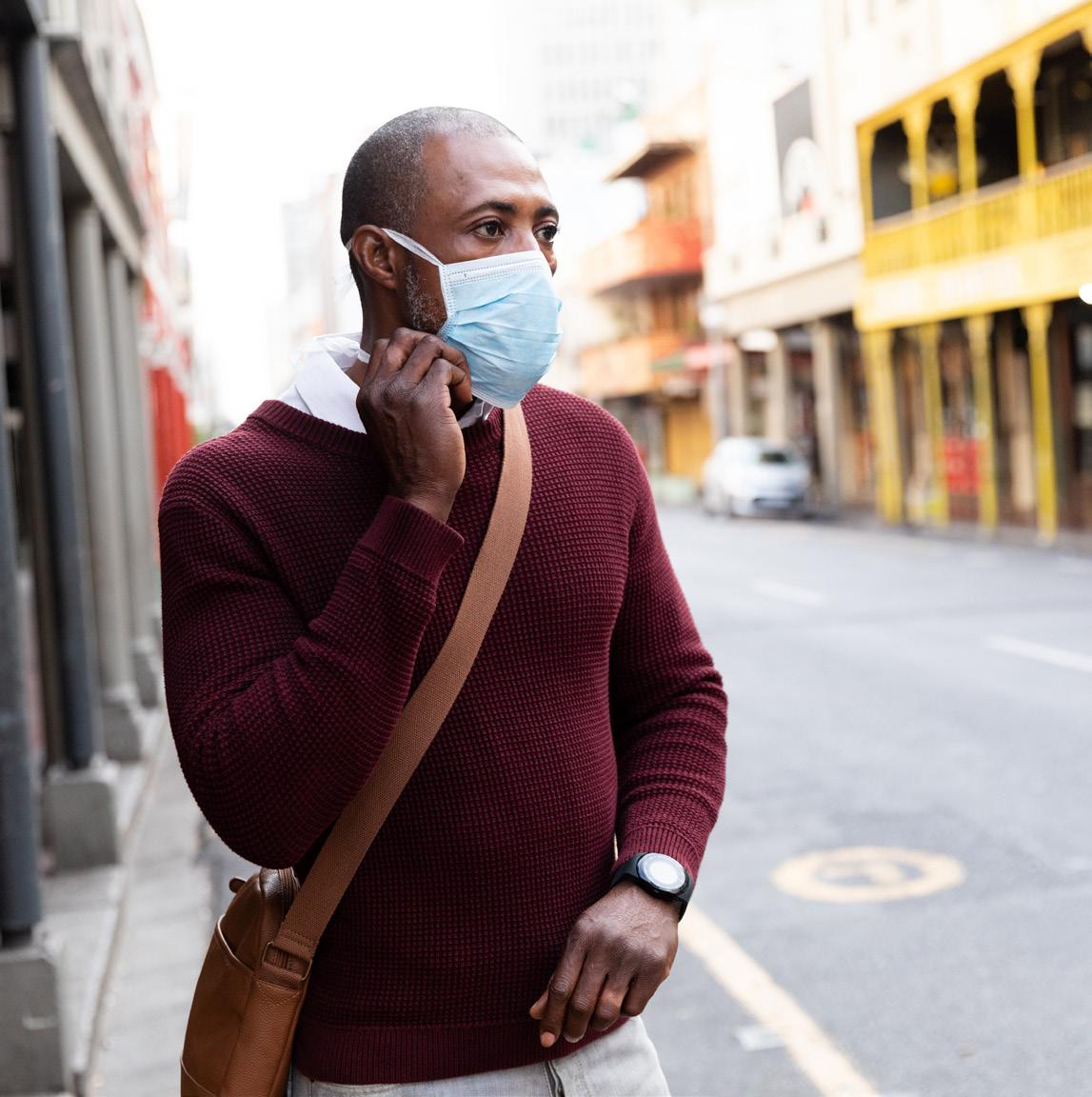
6 minute read
Plight of undocumented Californians
The Corona Pandemic Underscores the Plight of Undocumented Californians Recently, the president signed a $2 trillion relief fund that promises to mitigate the impact the Virus has on the workers, but where we cannot see the immigrants in the picture. It’s even worse, remember the stay at home orders? Well, immigrants are immune to these orders, but not by choice, they have been instructed to keep on working, despite the danger they face. They have given letters attesting to their critical role in maintaining a stable food chain in the country.
The CARES Act, signed into law in March 2020, delivers direct payments to the taxpayers, vastly expanding the unemployment benefits. It also makes the testing for the COVID-19 free, among many other provisions. While the immigrants are not immune to the Virus and its effect economically, this stimulus bill conspicuously leaves them out. This potentially puts them at a higher risk economically and health-wise.
You’re allowed to Stay, only if you Continue Working
These are the same people who have continuously done grueling working of picking fresh fruits from the farms that millions of American savors, all while still afraid that one day, she might lose her livelihood because she is in the country illegally. However, due to the coronavirus pandemic ironically, the government is applauding their efforts, deeming them as essential to the country. Most of the immigrants spent almost all their lives evading law enforcement. Still, in the wake of the COVID-19, most of them now walk with a letter from their employers declaring that the Department of Homeland Security considers them “critical to the food supply chain.”
“It’s like suddenly they realized we are here contributing,” said Ms. Silva, a 43-year-old immigrant from Mexico who has been working in the clementine groves south of Bakersfield, Calif.
It is no secret that most people working in American farms are undocumented immigrants from across the Mexican border. Most of these people are decades-long residents of the United States and often the parents of American-born children. They have lived all their lives in America worried that at any moment, they might be deported.
Let’s get the thing straight here, while the stimulus bill failed to recognize them, only for them to get “essential work” letters, and these letters are not a free pass from the immigration authorities. They could still be deported at any time. The local law enforcement authorities said that the letters given to the immigrants give them a sense of security that they will not be arrested for violating the stay-athome orders.
“If you have people who perceive that they may be stopped and questioned or deported because of their status, under these circumstances, having that letter makes them feel comfortable,” said Eric Buschow, a captain with the sheriff’s office in Ventura County, where thousands of farmworkers labor in strawberry, lemon and avocado operations. “They can go to work. And their work is essential now.”
The pandemic has put operations at the Immigration and Customs Enforcement’s operations on hold. On March 18, the Agency said that it would “temporarily adjust its enforcement posture” to put more focus not on ordinary undocumented immigrants, but on the people who pose a public safety or criminal threat. The Agency also said that it would only intervene in most extraordinary circumstances, especially near the health care facilities. Also, it would focus its efforts on human trafficking, gangs, and drug enforcement.
I think what the Agency is saying is that “okay here’s the deal, we’ll allow you to continue working for as long as the pandemic holds, hey we can’t let Americans starve, you’ve been riding on a free ride for years, this is how you pay us back. Consider it mercy. Otherwise, we can deport you anytime we want!”
Across the country, the situation for the farmworkers is literally, as they have been struggling to figure out what the pandemic
means for their safety and livelihoods. Even if right now they face a significantly lower risk of deportation, many worries that close working conditions in the fields and packing facilities put them at risk for contracting the Virus. Some of the workers are seeing their hours cut as employers adjust to the shifting market. “Sadly, it takes a health crisis like this to highlight the farmworkers’ importance,” said Hector Lujan, chief executive of Reiter Brothers, a large family-owned berry
grower based in Oxnard, Calif., that also has operations in Florida and the Pacific Northwest.

IMMIGRANTS ARE MORE VULNERABLE TO THE VIRUS If there is a group that is more vulnerable to the effect of the Virus is the Immigrant population all across the country. This is true because they do not have access to health care. The immigrants are significantly more likely to be uninsured compare to the citizens, which dissuades them from seeking medical care if they contract the Virus. While the Immigration and Customs Enforcement’s said that it would not carry out the enforcement actions near the
health care facilities, it is still not reassuring. Compounding matters are the Trump administration’s stringent immigration policies-including the wide-scale immigration raids and a rule that could penalize the green card applicants for using Medicaid-which have made the immigrants afraid to access.
“We’re operating in an environment where we constantly have to reassure patients that they can access services,” Jim Mangia, CEO and president of St. John’s Well Child and Family Center— a network of community health centers in the Los Angeles area that serve about 32,000 undocumented immigrants annually — said in a press call. “It’s a constant struggle, and in the midst of a pandemic, it’s even more difficult and more dangerous.”
And if you think immigrants will not loose their incomes like the rest of Americans, you’re so long. They may take the largest blow. The absent financial relief for the immigrants means that many may try to continue going to work despite the public health warnings to stay at home, which could spread the Virus even further among this population.
Speaking to Vox Theresa Cardinal Brown, director of immigration and cross border policy at the Bipartisan Policy Institute, said, “Those who cannot obtain relief are likely to continue going out and trying to earn a living, at the risk of themselves and spreading the Virus to others…“The cost of providing this benefit to them has to be weighed against the need to keep up the restrictions to stop the virus spread.”
BUT YOU CAN COME FOR TESTING One thing that the stimulus bill does is that it offers the immigrants a pass to get free testing for the Coronavirus at governmentfunded community health centers through a $1 billion federal program. Nonetheless, some community health centers have reported shortages of tests. Additionally, there is also a larger, state-level testing program funded through Medicaid, but that would be available for only the Medicaid-eligible immigrants-green cardholders who have lived in the US for at least five years. These immigrants come to the US on humanitarian grounds such as asylum, members of the military and their families, and, in certain states, children and pregnant women with lawful immigration status.
The US Citizenship and Immigration Services has said that it won’t consider the use of free testing when evaluating whether the immigrants will end up relying on the benefits provided under the public charge rule. This is a rule that went into effect in February and gives the immigration officials much leeway to turn away the people applying to enter the US, extend their VISA, or even convert their temporary immigration status into a green card if deemed they would likely use public services now or in the future.
The Agency also came out clearly to state that it will not weigh the treatment of the Virus or preventive care, such as a vaccine, if eventually developed under the public rule. This means loosening the standards for a Trump administration rule that has aimed the legal immigration.
Sources & Work Cited
https://www.vox.com/2020/4/1/21197017/ immigrants-coronavirus-stimulus-relief-bill https://www.nytimes.com/2020/04/02/us/ coronavirus-undocumented-immigrant-farmworkersagriculture.html











